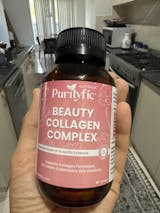
These are 6 Vitamins Recommendation For Healthy and Smart Kids

Every child needs to get enough vitamins to grow up and be an intelligent child. However, does the Little One need to be given additional vitamin supplements?
Launching from the Healthline page, experts revealed that not all children need additional vitamins every day. Ideally, children should get vitamins from a balanced and healthy diet that includes the following foods:
- Milk and dairy products.
- Fresh fruits and green leafy vegetables.
- Protein is found in chicken, fish, meat, and eggs.
- Whole grains like wheat and rice
Children will grow up healthy and smart if we manage their food well. Therefore, let's maintain balanced nutrition for children.
What kind of child needs vitamin supplements?
Given the fact that there are parents who lack time, a full-fledged home-cooked meal is not always possible to prepare. That is why the pediatrician may recommend daily multivitamin or mineral supplements for your children with the following conditions.
- Children who do not eat regular and balanced food made from fresh and whole foods.
- The child is cranky when eating so it does not eat enough.
- Children who have chronic medical conditions such as digestive problems or asthma, especially if they are taking medication. Be sure to talk to your pediatrician before starting any supplements if your child is on medication.
- Children who like and eat a lot of fast food, convenience food, and processed food.
- Children who consume a lot of carbonated soda drinks, will remove vitamins and minerals from their bodies.
Here are vitamins and minerals that are very important for children's growth, so that children grow up healthy and smart as reported from the WebMD page.
1. Vitamin A
Read: This is the Impact of vitamin A Deficiency and How to Prevent It
Vitamin A promotes normal growth and development such as tissue and bone repair, skin health, eyes, and healthy immune response. Good sources of vitamin A include milk, cheese, eggs, and yellow to orange vegetables such as carrots, sweet potatoes, and pumpkin.
2. B Vitamins
The family of B vitamins namely B2, B3, B6, and B12 can help metabolism, energy production, and a healthy circulatory and nervous system. A good source of B vitamins is in meat, chicken, fish, nuts, eggs, milk, cheese, and soy.
3. Vitamin C
Read: Amaazing! This is How Vitamin C Helps Your Body
Vitamin C is good for maintaining healthy muscles, connective tissue, and skin. These foods are rich in vitamin C, namely citrus fruits, strawberries, kiwi, tomatoes, and green vegetables such as broccoli.
4. Vitamin D
Vitamin D supports the formation of bones and teeth and helps the body absorb calcium. You can give him foods like milk and fatty fish like salmon and mackerel. Note that sunlight is the best source of vitamin D.
5. Calcium
With calcium, the growing child's bones will be stronger. You can give him milk, cheese, yogurt, tofu, and calcium-fortified orange juice.
6. Iron
Iron is essential for building healthy muscles and red blood cells. Iron deficiency can be a risk in adolescence, especially for girls after they start menstruating. Foods rich in iron include beef and other red meats, spinach, beans, and prunes.








